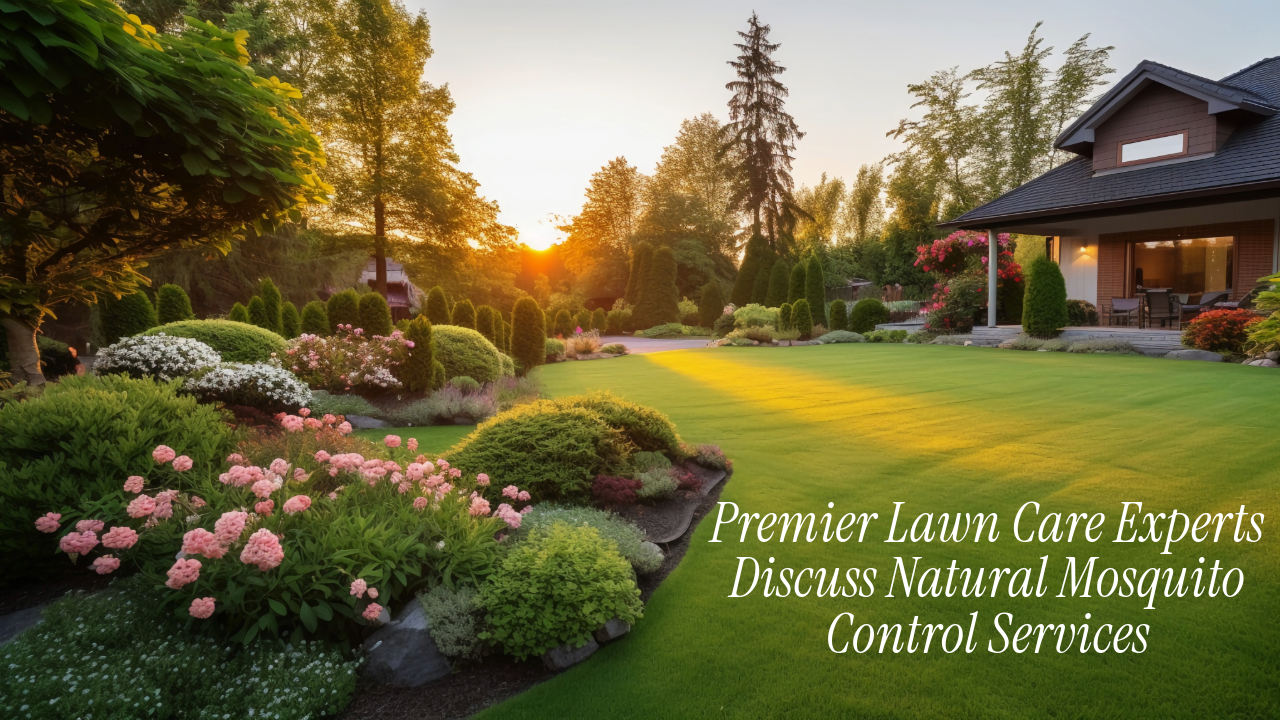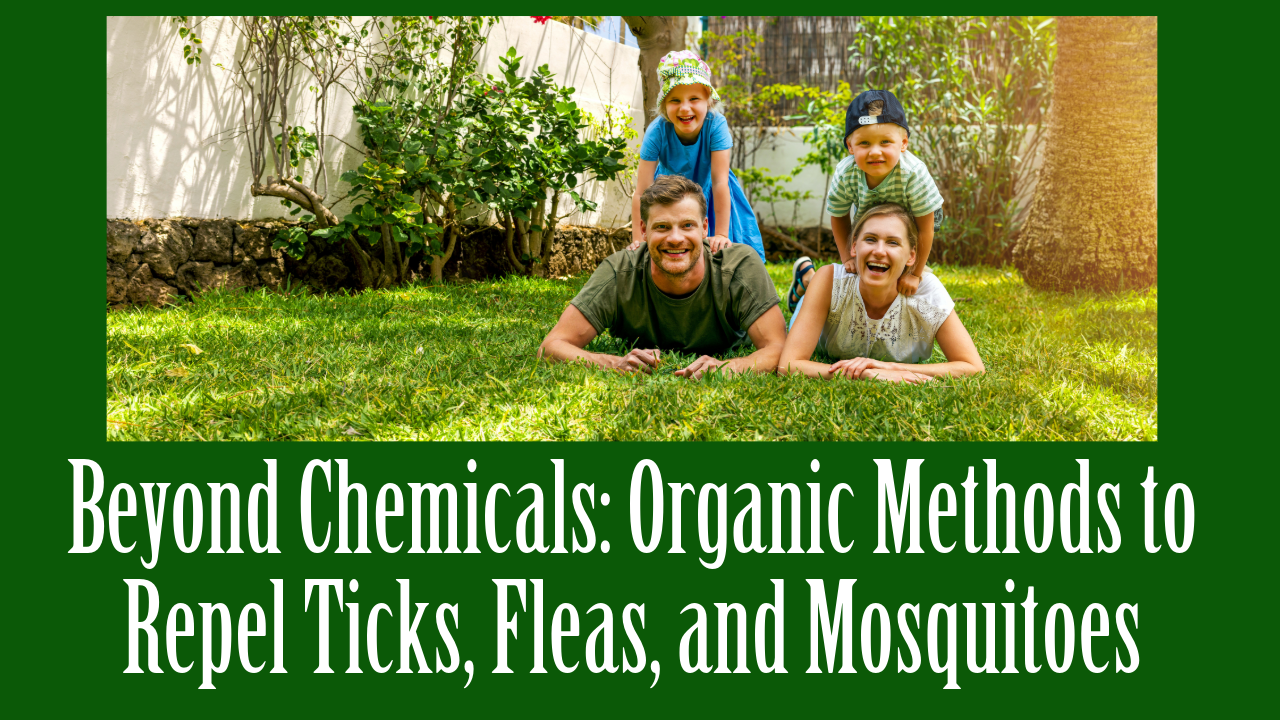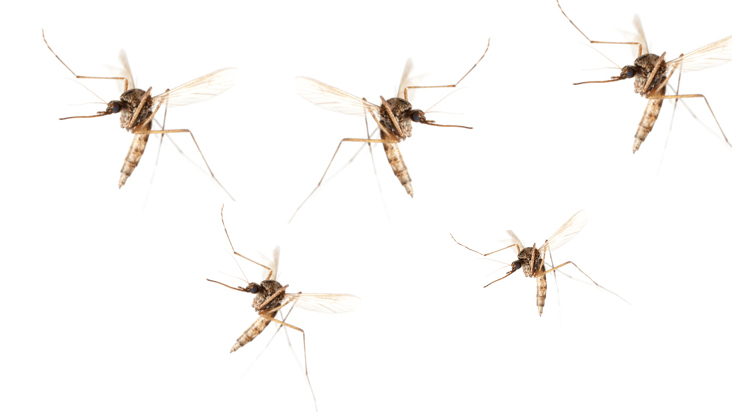When it comes to maintaining a beautiful and healthy lawn, pest control is a crucial aspect that cannot be overlooked. Traditional chemical pesticides may seem like a quick fix, but they can harm your lawn’s ecosystem and ultimately do more harm than good. That’s where organic pest control and natural mosquito control services come in. By utilizing non-toxic solutions, you can keep pests at bay while ensuring that your lawn remains green and vibrant. In this blog post, we will discuss the benefits of organic flea, tick, and mosquito control services and how they can benefit your lawn in the long run.
Understanding the Importance of Organic Pest Control
Organic pest control is more than just a means to rid your lawn of unwanted visitors; it signifies a commitment to the health and sustainability of your outdoor space. Choosing to implement organic methods for managing pests aligns with a broader movement towards environmental stewardship and conservation. Traditional pesticides, while effective in the short term, can have long-lasting negative impacts, including the degradation of soil health, contamination of water sources, and harm to non-target organisms that are beneficial to your garden’s ecosystem.
In contrast, organic pest control approaches prioritize the use of natural predators, biological agents, and plant-based treatments that work with nature, rather than against it. This holistic strategy supports a diverse ecosystem, encouraging a balance that naturally reduces the populations of harmful pests. By fostering a healthy environment where beneficial insects and microorganisms thrive, your lawn can become more resilient to infestations and diseases.
Furthermore, organic practices contribute to the safety of pets and humans who enjoy the lawn. Exposure to chemical pesticides has been linked to a range of health issues, making the switch to organic solutions not only a choice for your lawn’s well-being but for your family’s health too. Embracing organic pest control is an investment in the long-term vitality of your lawn, ensuring it remains a safe, beautiful, and thriving space for years to come.
The Science Behind Natural Mosquito Control Services
Natural mosquito control methods stand out for their innovative approach to managing mosquito populations without the adverse environmental effects associated with traditional chemical pesticides. These methods harness the power of biological and botanical agents that are inherently repellent or lethal to mosquitoes, yet safe for other wildlife and humans. Essential oils derived from plants such as citronella, eucalyptus, and lavender, for example, are known for their mosquito-repelling properties and form the basis of many natural mosquito control solutions. Additionally, biological control strategies involve introducing or supporting natural mosquito predators, such as certain fish species, dragonflies, and bats, into the ecosystem.
Another aspect of the science behind these services is the targeted disruption of mosquito breeding cycles. Mosquitoes require standing water to breed, so managing water sources effectively can significantly reduce their populations. Implementing environmentally friendly water management practices, such as proper drainage and the use of natural bacterial agents that target mosquito larvae without harming other species, is crucial.
By focusing on these ecological and biological principles, natural mosquito control services not only diminish the immediate nuisance and health risks posed by mosquitoes but also contribute to the sustainability and resilience of local ecosystems. This scientific approach ensures that mosquito control efforts are both effective in the short term and beneficial for the long-term health of your lawn and garden’s natural environment.
Benefits of Going Organic for Flea and Tick Prevention
The shift to organic flea and tick prevention methods is more than a lifestyle change; it’s a holistic approach to pest management that benefits both your lawn and the broader environment. Unlike conventional chemical treatments that pose risks to wildlife, pets, and even family members, organic options utilize natural compounds and biological control measures that are inherently safe and non-toxic. These eco-friendly alternatives, such as botanical sprays derived from essential oils and nematodes that prey on flea and tick larvae, target pests without disrupting the delicate balance of your lawn’s ecosystem.
Organic methods also promote the health of your lawn by avoiding the chemical runoff that can degrade soil quality and contaminate water sources. This is crucial for maintaining the biodiversity of your garden, where beneficial insects and microorganisms play a significant role in pest control and pollination. By opting for organic flea and tick prevention, you’re not only protecting your pets and family from the dangers of synthetic pesticides but also contributing to a sustainable gardening practice that respects and nurtures the environment.
Furthermore, adopting an organic approach can lead to long-term savings. While the initial investment in organic products might be higher than chemical alternatives, the reduced need for frequent applications—as organic methods aim to balance the ecosystem rather than merely killing off pests—means lower costs over time. Additionally, a healthy, naturally maintained lawn is more resilient to infestations, reducing the need for emergency pest control measures.
Embrace organic flea and tick prevention to enjoy a vibrant, healthy lawn that’s safe for everyone to enjoy, underlining a commitment to environmental stewardship and sustainable living.
Integrating Your Lawn’s Ecosystem into Pest Control Strategies
Incorporating your lawn’s ecosystem into your pest management plan is essential for a sustainable and holistic approach to pest control. This process involves understanding the intricate relationships within your garden’s ecosystem, including the roles of various plants, insects, and other wildlife. A key component of this strategy is encouraging the presence of natural pest predators, such as birds, ladybugs, and frogs, which can help keep pest populations under control. By fostering a diverse ecosystem, you also increase the resilience of your lawn to pest infestations, as a variety of plant species can offer natural resistance to pests and diseases.
Additionally, it’s important to practice companion planting and select plants that naturally repel pests or attract their predators. Certain flowers and herbs, for example, can serve as effective deterrents for specific pests while also enhancing the aesthetic appeal of your garden. Cultivating a healthy soil microbiome through the use of organic compost and mulches is another crucial aspect of integrating your lawn’s ecosystem into your pest control efforts. Healthy soil supports strong plant growth and can improve your lawn’s natural defenses against pests.
By taking these steps, you not only manage pest populations more effectively but also contribute to the overall health and vitality of your lawn’s ecosystem. This approach allows you to work with nature, rather than against it, creating a balanced and thriving outdoor space that is less reliant on external pest control interventions.
Maximizing the Effectiveness of Natural Tick Control Services
To ensure that natural tick control services are as effective as possible, it’s vital to adopt a multifaceted approach that complements these services. Implementing landscaping practices that discourage tick habitation can significantly boost the efficiency of natural control methods. This includes maintaining a well-trimmed lawn, as ticks prefer tall grasses and brush to hide and breed. Creating a buffer zone of gravel or wood chips between wooded areas and your lawn can further deter ticks from migrating into recreational areas.
Integrating certain plants that are known for their tick-repelling properties into your garden can also play a critical role. Plants like garlic, lavender, and marigolds not only add beauty to your landscape but also work to naturally repel ticks. Encouraging biodiversity in your yard is another effective strategy. Beneficial insects and birds can reduce tick populations by preying on them and their hosts.
Regular inspection and maintenance of your property, especially in areas where pets and children play, is crucial for early detection and removal of ticks. Employing natural tick control services that utilize safe, organic treatments targeting ticks at various life stages can help to minimize their presence on your property. By integrating these strategies, you enhance the effectiveness of natural tick control measures, fostering a safer, healthier outdoor environment for everyone to enjoy.
Contact us to get your lawn summer ready
Ready to transform your outdoor space into a vibrant, pest-free haven this summer? Our team of lawn care specialists is here to guide you through the transition to a healthier, more sustainable approach to pest control. With decades of expertise in Massachusetts, we specialize in crafting bespoke organic pest management strategies that align with your specific lawn care goals. From natural mosquito and tick prevention to fostering a biodiverse garden ecosystem, we’re committed to providing solutions that not only protect your lawn but also support the well-being of your family and the environment. Embrace a summer of outdoor living with confidence, knowing your lawn is in expert hands. Reach out to us today, and let’s collaborate on making your green space a beautiful, chemical-free sanctuary. Contact us today!





